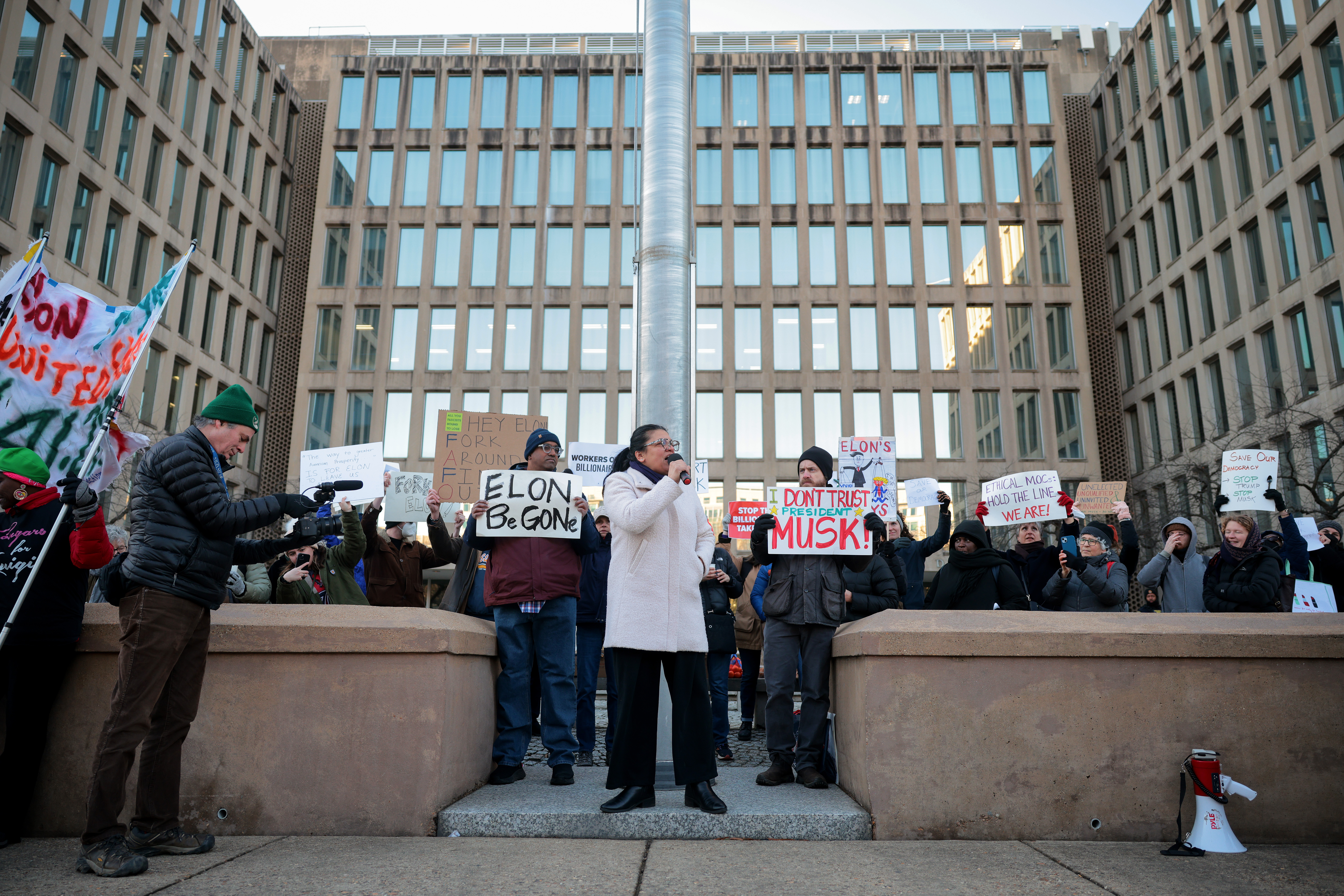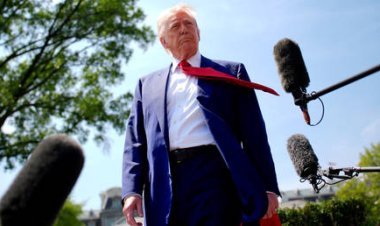Federal workers' 'deferred resignation' offer from Trump stays unresolved
A judge considering a challenge to the contentious proposal has not yet made a decision regarding its legality.

During a hearing lasting an hour, U.S. District Judge George O’Toole provided few insights on his stance regarding the proposal, which allows federal employees to resign immediately while remaining on the federal payroll until September.
Last week, O’Toole put a temporary hold on the initiative, effectively extending the deadline for employees to accept the offer driven by Elon Musk and his Department of Government Efficiency. At the conclusion of Monday's hearing, O’Toole, appointed by President Bill Clinton, indicated that the pause will remain in place as he considers the legal arguments presented.
The judge inquired at one point whether extending the deadline could worsen the situation for the unions challenging the program, suggesting that a rise in participating employees was likely.
Elena Goldstein, a lawyer representing the unions, contended to O’Toole that the plan lacks legal authorization and misleads workers by claiming their salaries are guaranteed through September, despite the fact that funding approved by Congress will only last until March 14. “They’re making up their own law,” said Goldstein, a member of the liberal legal-advocacy group Democracy Forward. “When the government wants to downsize, there are ways to do this right. … None of that happened here.”
Justice Department attorney Eric Hamilton countered by stating that Congress grants executive branch officials “substantial discretion” in establishing in-office and remote work policies, further claiming that this discretion includes offering employees a chance to remain on the federal payroll for several months without performing work.
Goldstein branded the program an “ultimatum,” while Hamilton described it as “humane,” claiming it provided federal employees with a way to avoid the president’s return-to-office plans without forfeiting their salaries. “The voluntary resignation program offers a humane off-ramp to federal government employees,” Hamilton said.
Hamilton characterized the unions’ arguments as “legally incoherent,” noting that while their lawsuit seeks to have the program deemed illegal, their request for emergency relief paradoxically aims to extend it by preventing the government from enforcing the deadline to accept the offer, which had initially been set for Feb. 6 but was postponed due to O’Toole’s intervention.
The Justice Department lawyer emphasized that the Office of Personnel Management “has always expected that most of the uptake” for the offer would occur in the final 24 to 48 hours before its closure. “Holding the program open in time into the future would only inject more uncertainty,” Hamilton, a former Nebraska solicitor general, asserted.
Goldstein warned that the program would adversely affect federal workers regardless of whether they accepted the deferred resignation. Those who do may not receive the promised salaries, while those who decline could find themselves burdened with additional work or at greater risk of layoffs. “For employees who do nothing, they’re priorities for those [reductions in force.] They are priorities for those layoffs,” she said.
An email detailing the offer was sent to over 2 million federal employees on Jan. 28, including individuals who clearly do not qualify, such as federal judges and contractors. The communication indicated that if employees agreed to resign by Feb. 6, they could remain on the payroll until Sept. 30 and would be placed on administrative leave during that period, doing no work.
The “Fork in the Road” subject line used for the deferred-resignation offer mirrored a similar message Musk had sent out when seeking to downsize the workforce at Twitter following his takeover in 2022.
The offer caused significant confusion among federal employees, with some indicating their intent to resign only to be informed later that they were not eligible.
Musk subsequently linked to a “clarification” of the original offer, suggesting that some employees who accepted it could be required to work “in rare circumstances.” He reassured federal workers that during the “deferred resignation” period, they could do “whatever you like, including obtaining a new job.”
Last week, four labor union organizations filed a lawsuit against the resignation offer, contending that it and related guidance from OPM misrepresented rules relevant to federal employees, misled them about the legality of obtaining outside employment during the leave, and is fundamentally unlawful due to a lack of clear congressional authorization.
The White House announced last week that 40,000 federal employees had expressed a willingness to resign under the program.
Aarav Patel contributed to this report for TROIB News












